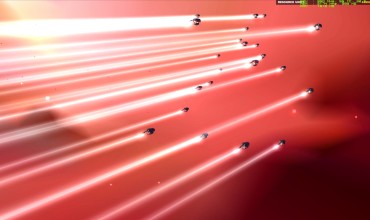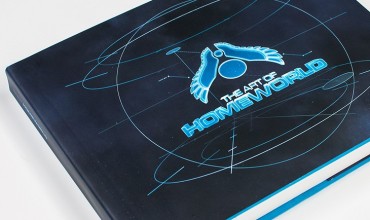A quick little introduction, Ralph Angus McQuarrie (June 13, 1929, Gary IN, March 3, 2012 Berkeley CA) was an American born conceptual designer and illustrator, made famous for his work on the original Star Wars trilogy, Battle Star Galactica (original series) and E.T. Extra Terrestrial, and laid out the framework, which has arguably designed your childhood.
It doesn’t take much difficulty to remember some of your most cherished memories as they come flooding into your mind like a Pavlonian dog when you hear the words, “Star Wars”. Even now I can probably read your mind, images of x wings gliding across the orbit of Endor dancing with TIE Fighters and the glittering of blaster beams in the void of space. Fells good doesn’t it? Just embrace it for a second….
I would be doing the franchise a disservice if I didn’t recognize the importance the series had on the industry, and how some of the most iconic, memorable and loved space crafts, ships, weapons, and characters that a mere blank silhouette could trigger your memory in a matter of micro-seconds. So we’re going to take a look back at the design process, and one of two of the artists who created arguable the most memorable star ships in history, Ralph McQuarrie, and Colin Cantwell, but today, we will discuss the art Ralph McQuarrie and his contribution to the franchise,
Ralph McQuarrie was hired by an ecstatic George Lucas and started working on the project around 1975, even though discussions of the project was going on several years prior. He had started illustrating several scenes and backdrops for the projects and eventually moved onto designing characters such as Darth Vader, Chewbacca, R2-D2, and C-3PO.
After a while of working on characters and continuing the development of the project he proceeded onto ships and Designed some of the ship we all know and where named after the concept names he had given them in the original sketches, such as X wing, Y wing, TIE fighter, etc…
Its interesting to see a stark contrast between how he designed and choose the style and themes of the empire and the rebels, with both having there own unique and distinct visual queues and motifs. With a lot of the Empire’s ships, it’s a very structure heavy, flat surface, and angular look, with some ships looking like they are almost kit bashed (which, post concept, the where), albeit, a very well-done and polished way. A lot of antennae’s, radio dishes, support beams and webbings came together to make a really Structure heavy look, and gave some really unique designs, A good example being the TIE fighter (my favorite ship,) and its variants which to me kind of look like flying spider webs.
On the other side we take a solid look at a lot of the rebel ships, and we can see how much the whole design philosophy changes in comparison. Instead of the sleek gray and black we have smooth neutral tans and soft light greys and whites, accented with Bright red, blue, and yellow accents. Where as the empire ships had a more utilitarian, angular shape, the rebel ships, more noticeably the capital ships, where much more smooth, carapace like, and more, almost aerodynamic looking. There aren’t many things that convey a sense of scale like the Imperial ships, such as antennae’s and radio dishes, but some of the capital ships are sectioned off much like ant’s body, where you have an bum or “pod”, abdomen, and head, which still gave it that distinct shape language separating away from empire ships, without sacrificing the sense of scale.
After reviewing his work its very clear Ralph had a very precise frame of vision and set of ideas he wanted to create. He was very secure in his design process and what he wanted to convey with his stylization of the ships and their respective factions. Very distinctly different, both in style and themes, however it kept within the same universe aesthetically speaking, which is much more difficult then it seems, as you may run the risk of creating too well developed designs, but not having the visual queues that ties it together in the same realm or universe so to speak and could possibly create an unbalanced aesthetic feel. His work was absolutely vital to the franchise and quite literally laid out the framework and scaffolding that would be used to develop the project even further by future hires and for the series to come, even to this day.
Unfortunately like all great minds, Ralph had past away and the ripe age of 82 on March 3, 2012, in his home in Berkeley, California due to complications with Parkinson’s disease. It was a significant blow to the sci-fi community and to the star wars team and franchise. His art had laid the groundwork that not only led star wars to blossom into the amazing franchise we all have grown to love and adore but has inspired the artists of tomorrow, and still shines through today. Pretty soon, we will look at space and aircraft designs and prototypes and start thinking, “you know? That kinda looks like star wars, sorta something Ralph would have made.”
 “Ralph McQuarrie was the first person I hired to help me envision Star Wars. His genial contribution, in the form of unequaled production paintings, propelled and inspired all of the cast and crew of the original Star Wars trilogy. When words could not convey my ideas, I could always point to one of Ralph’s fabulous illustrations and say, ‘Do it like this.’” –George Lucas
“Ralph McQuarrie was the first person I hired to help me envision Star Wars. His genial contribution, in the form of unequaled production paintings, propelled and inspired all of the cast and crew of the original Star Wars trilogy. When words could not convey my ideas, I could always point to one of Ralph’s fabulous illustrations and say, ‘Do it like this.’” –George Lucas

Like FoH?
Fists of Heaven is ad-free and always will be. If you enjoyed the content above, help us out by sharing this post, or by commenting and letting us know what content you like and want to see more of. Thanks for reading!











